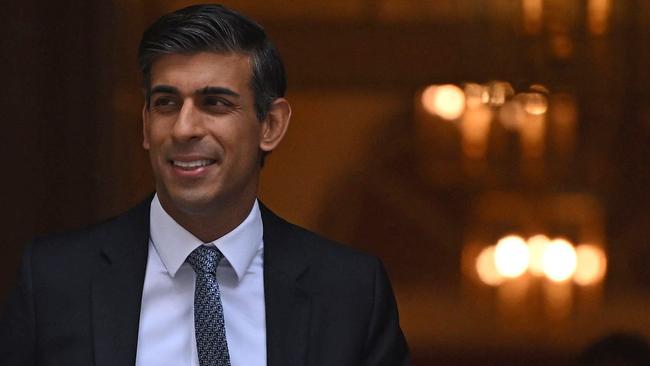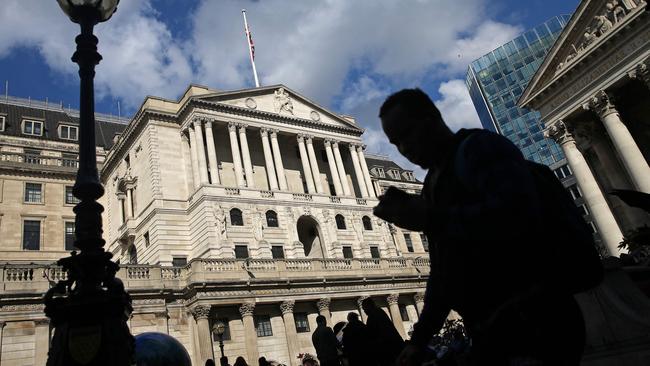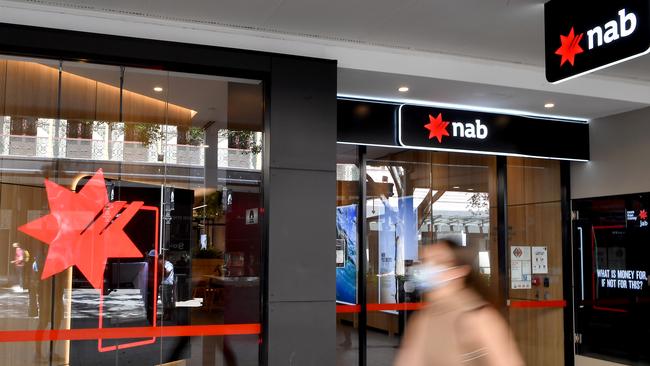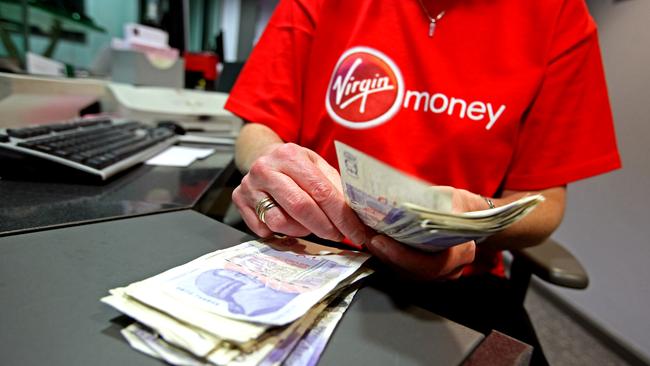
It is facing the prospect of a long-entrenched recession, with a financial system punch-drunk from Brexit, political turmoil, surging cash rates, war in Europe and an energy crisis. But veteran British banker David Duffy wants investors to take another look.
The boss of ASX and London-listed bank Virgin Money UK says that despite everything thrown at the country – including the passing of the Queen in September – there is hope that a new period of stability is about to set in under new Prime Minister Rishi Sunak. The next general election is two years from now, Duffy says, which is the breathing room needed for the economy to get on with a recovery.
The bond and pension market turmoil at the end of September sparked by the short-lived Liz Truss government was a strong message to politicians about pulling in a different direction from markets.

Duffy says the new conservative government led by Sunak since October has gone a long way to restoring financial market confidence, by putting fiscal responsibility back as a priority.
Now the central bank, the Bank of England, is talking about a cash rate peaking at a lower level, with signs that inflation can be curbed earlier than expected. And this shift in lower “peak rates” is good for market sentiment.
“I think we’ve now seen the most extreme event pass. So long as the stability in the UK continues, this positive trend will probably continue,” Duffy tells The Australian.
Still, the economy is not out of the woods yet. The Bank of England still says the British economy is facing a “challenging” outlook with it likely to enter a recession from the December quarter. The downturn is expected to last into 2024, marking the country’s longest recession in nearly a century. Currently the British cash rate is sitting at 3 per cent, compared to Australia’s 2.85 per cent, although the RBA is expected to hike rates on Tuesday.
“The objective analysis of all the most significant stakeholders is that it should be a shallower recession and heading into 2024 we should be coming out of it and lifting our heads up and looking to the future,” Duffy says.
He was speaking in Sydney as Virgin Money – Britain’s sixth biggest bank, which can trace its recent history to National Australia Bank – delivered a record annual profit and hiked dividends.
And like Virgin Money’s Australian counterparts, the banking sector in Britain remains in surprisingly good health despite fast-rising rates.
Lending losses continue to trend lower as unemployment there hovers near 50-year lows and household debt levels remain contained.

The key difference to Australia is the extent of the lag effect when it comes to feeling the pinch of higher interest rates. Nearly the entire British lending book is set at fixed rates, which means that many borrowers have yet to be hit with a jump in the cash rate.
There are risks on the horizon. Inflation is driving up costs more broadly, while household energy costs are surging into winter – although government support is providing a cushion for lower income households. Mortgages are being reset at higher rates, which will be increasingly felt over the coming year.
Despite talk of gloom in financial markets, Duffy says there’s a resilience in the housing market and among consumers in general.
“It now feels like it’s a manageable environment, That feels positive,” he says.
Aussie offshoot
Virgin Money last month posted a 13.3 per cent jump in net profit to £537m ($971m), helped by a jump in revenue as interest margins widened. Lower lending losses meant the bank was able to launch an additional £50m share buyback, on top of the £75m already announced in June. The higher-than-expected profit and capital return drove a 10 per cent surge in Virgin Money’s shares on the day of the results. The bank’s shares are down 7 per cent this calendar year on the subdued British economic outlook, but have gained nearly 30 per cent in the past six months.
Virgin Money, which has a $130bn lending book, emerged out of NAB’s long-held Scotland-based Clydesdale Bank. For years Clydesdale and its sister bank Yorkshire sat overlooked and investment-starved inside NAB’s portfolio of businesses.
The British business was later spun out of the Australian lender in 2016 as a standalone entity, with Duffy recruited from Allied Irish Bank – where he was chief executive at the time – to help oversee the process. NAB no longer has any ties to the British bank.
The spin-out gave the bank an outsized Australian investor base – some 52 per cent of shareholders are based here, although it doesn’t operate any businesses locally. (It has no links to the Australian Virgin Money credit card business which is operated by Bank of Queensland). For several years after its listing, profits were weighed down as it grappled with large payouts to legacy insurance products that had been mis-sold.

Later in 2018 it pounced on British national lender Virgin Money for the equivalent of $3bn in a move that doubled customers and the size of its loan book.
Clydesdale moved its entire retail business across to the Virgin platform, which was the stronger national brand and skewed to a more upmarket customer base.
The new entity now has more than 6.6 million UK-based customers, with the bulk coming into the bank through its digital platform. It continues to offer small to mid-sized business banking under Clydesdale brand.
But under the Virgin brand the bank is using its digital reinvention to make inroads into the national lending market. It added 131,000 digital-based accounts last year and deposit growth was up 13 per cent. It has also launched its own buy now, pay later product and will soon launch its own fully online fast-mortgage product.
The bank’s new app is also about to leverage the high-profile loyalty program of Richard Branson’s broader Virgin Group. This gives it access to a potential 40 million-plus customer base, including 18 million in Britain. The aim here is for the bank to boost market share by offering a digital wallet for customers using services inside the Virgin group that range from mobile, entertainment to air travel.
Resilience
Duffy says the mood of the consumers across Britain is one of “developing caution” but there’s resilience in the housing market and people in general. Households are certainly exposed to the uncertainty of war and the European economy, as well as feeling the pinch from energy prices.
Banks, including his own, are forecasting a peak-to-trough fall in house prices of 10 per cent, which is causing caution in the property market. It falls short of Australia’s forecast 15 per cent fall.
Duffy says credit card spending is now being consumed more by energy bills and food, while discretionary spending on travel and luxury goods is pulling back. “The composition of spending is changing to reflect the circumstance,” Duffy says.

Low unemployment means wage costs are going up – fast. Indeed Duffy has just signed off on a 10 per cent increase for his staff over the coming year. By comparison, NAB’s workers last week rejected a 5 per cent increase for the bank’s lower-paid workers. Westpac staffers recently approved a 4 per cent rise for lower paid staff.
Virgin’s double-digit pay increase was done on the grounds of the company being “purpose driven” which also comes down to addressing the economic stress on staff, he added.
Getting independence from NAB’s Melbourne headquarters was important for its growth, he adds. “You could control your own domain, make a decision and act on it, as opposed to going through a management vehicle or head office. (The demerger) suited both parties at the time,” he says.
“The bank today is now the sixth-largest bank in the UK. It’s fully branded as Virgin. It’s got the size, the scale, all the products. The genesis of that has come from Clydesdale and Yorkshire, acquiring Virgin Money, and then rebranding, which has turned it into a really big competitor in the UK”.
Numerous Australian shareholders, including institutional investors, is a “source of strength” for the business and Duffy has no intention to change it. He says the shift to the Virgin brand allowed the bank to tap a national market once beyond reach.




On paper the British economy has all the hallmarks of a mess.